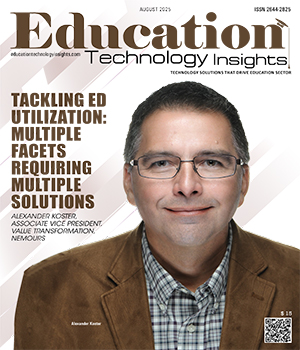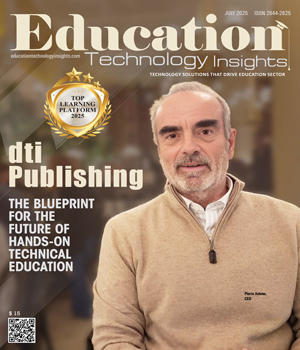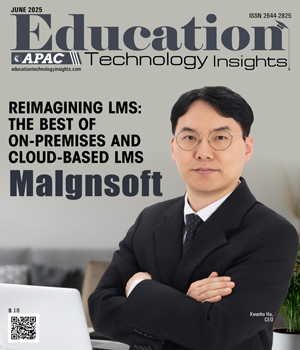THANK YOU FOR SUBSCRIBING
Be first to read the latest tech news, Industry Leader's Insights, and CIO interviews of medium and large enterprises exclusively from Education Technology Insights
The Confluence Of AI With Everything!
Brendan McGinty, Director of Industry, National Center for Supercomputing Applications (NCSA) and Dr. Seid Koric Technical Associate Director, National Center for Supercomputing Applications, Rese
 Brendan McGinty, Director of Industry, National Center for Supercomputing Applications (NCSA) and Dr. Seid Koric Technical Associate Director, National Center for Supercomputing Applications, Rese
Brendan McGinty, Director of Industry, National Center for Supercomputing Applications (NCSA) and Dr. Seid Koric Technical Associate Director, National Center for Supercomputing Applications, Rese“AI is the new electricity,” said renowned AI expert and researcher Dr. Andrew Ng of Stanford. Think about the significance of that statement. AI – artificial intelligence – has the impact on today’s world that electricity did when Nikola Tesla and Thomas Edison were in such competition before the turn of the 19th century.
AI is not new. Founded in the mid-1950s at a Dartmouth College conference, development of AI went through a couple of AI-winters before it has slowly evolved over the years to add levels of depth and sophistication to the analysis and result of great challenges. Only more recently, in the past ten and certainly more so the past five years as AI has been an emphasis and solution set for the masses, from smartphones to self-driving cars to sensors and so much more. The reason?The rapid advancement of high-end and GPU computing and data deluge. Thanks to sensors, satellite imagery, and massive computing, AI is everywhere because data is everywhere.
The data and advanced computing is there, but what can you do with it? Who knows what is possible and how to “do AI?” High school students learn to program in some of their classes. Now, some of those classes teach machine learning techniques and programming. There are also opportunities to learn online. In many cases, high-school students going to college come in knowing how to program and having some ideas about machine learning.
From there, college and universities are now providing multidisciplinary curricula, in many cases with a minor degree in computer science and programming, and a subset of that can be AI — machine and/or deep learning. Add to these AI skills the major degree domain expertise in physics, engineering, life-sciences, economics and other disciplines, and you have a powerful talent with many career options.
"Thanks to sensors, satellite imagery, and massive computing, AI is everywhere because data is everywhere."
Either by adding AI to domain expertise or vice versa, the confluence with AI has begun. Couple the skills to leverage AI to solve a “real world” problem — supply chain, drug discovery, design and optimization, clean energy, climate change, and so much more — and the solutions represent a true confluence with AI, as AI typically provides faster, deeper, more robust solutions, especially to very large, data-driven challenges and complex problems and processes, often unsolvable or even describable by the traditional analytical and computational methods.
We do not know if and when a point of true intelligence will be ever reached in AI, i.e., that a machine can have a type of general intelligence, logic, and feelings similar to a human’s. Still, one thing is sure: the need for multidisciplinary education in AI and its confluences with everything we know will become one of the most valuable skills in the future.
Read Also
Putting Students First in a Global Classroom
Balancing Technology-Driven Teaching with Traditional Learning
Reflections on Vocational Education and Emerging Opportunities
Elevating Engaged Teaching in a Digital Era
Embedding Immersive Technologies within the Curriculum: Strategies for Sustainable Development
Aligning Innovation with Impact in Higher Education

I agree We use cookies on this website to enhance your user experience. By clicking any link on this page you are giving your consent for us to set cookies. More info





















